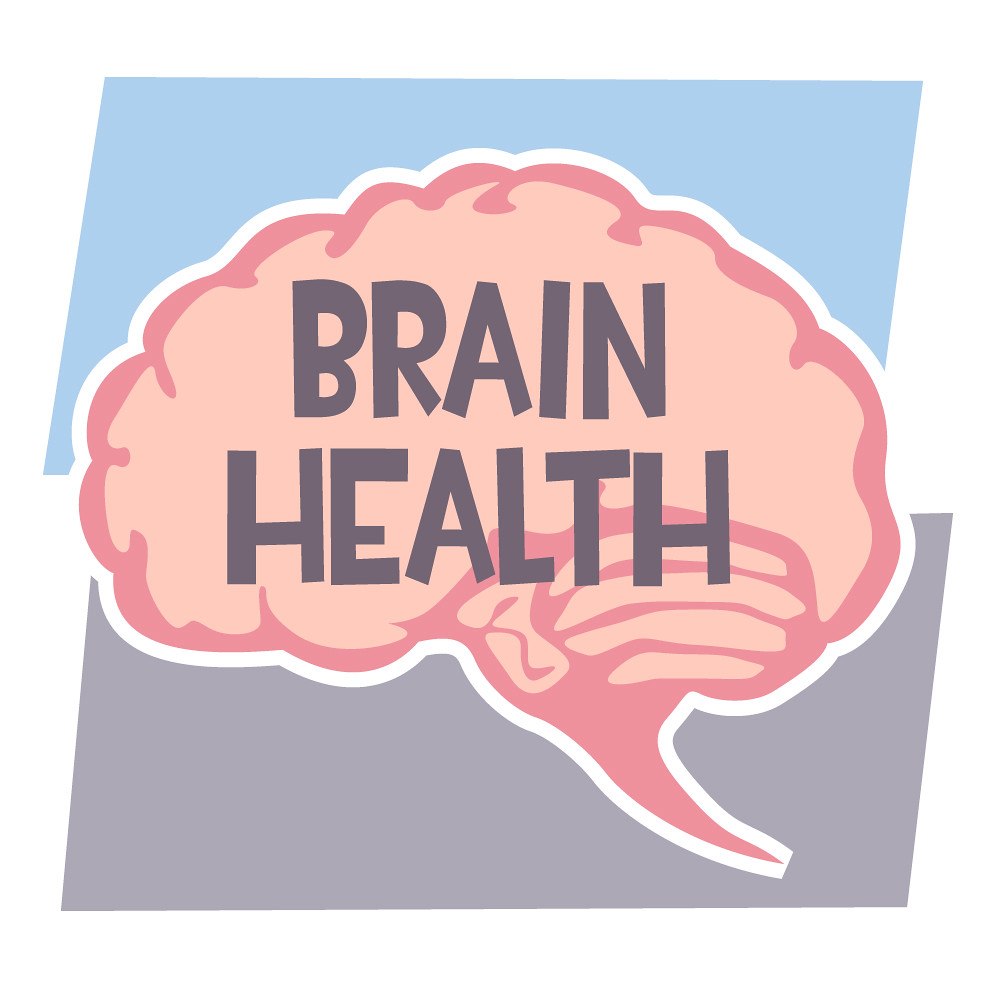
Unlock Your Brain’s Potential: Proven Ways to Boost BDNF Levels
Discover the significance of Brain-Derived Neurotrophic Factor (BDNF) and how you can naturally enhance its levels for optimal brain health.
1. Introduction: The Power of BDNF
BDNF, or Brain-Derived Neurotrophic Factor, is a protein that plays a pivotal role in neuronal health, cognitive function, and overall brain vitality. As the brain’s very own growth factor, BDNF not only supports existing neurons but also promotes the formation of new synapses, essential for learning and memory. In this guide, we’ll delve into the importance of BDNF and provide actionable strategies to boost its levels.
Key Takeaways:
- BDNF is crucial for neuronal survival, growth, and maintenance.
- Higher BDNF levels are associated with enhanced cognitive function.
- Lifestyle and dietary choices can significantly influence BDNF production.
2. Exercise: The Brain’s Natural Boost
Why Exercise Matters
Physical activity is more than just a way to keep your body in shape; it’s a powerful tool to enhance your brain’s function. Regular exercise has been scientifically proven to increase BDNF levels, making it a top recommendation for anyone looking to optimize their brain health.
Types of Exercises to Boost BDNF
- Cardiovascular Activities:
- Running
- Cycling
- Swimming Engaging in these activities for at least 30 minutes, 3-4 times a week, can provide a significant BDNF boost.
- Strength Training: Incorporating weight lifting or resistance exercises can also contribute to BDNF production.
- Yoga and Pilates: These mind-body practices not only enhance flexibility but also promote mental well-being, indirectly boosting BDNF levels.
Pro Tip: Intermittent high-intensity intervals during cardiovascular exercises can provide an added BDNF boost.
3. Dietary Habits: Nourish Your Brain
Foods that Elevate BDNF Levels
Your diet plays a monumental role in determining BDNF levels. Consuming brain-friendly foods can naturally enhance its production.
Top Foods to Include:
- Fatty Fish: Rich in omega-3 fatty acids, like salmon and mackerel.
- Berries: Blueberries, strawberries, and raspberries are packed with antioxidants.
- Green Leafy Vegetables: Spinach, kale, and collards promote brain health.
- Nuts: Especially walnuts, which have high omega-3 content.
- Turmeric: Contains curcumin, which can cross the blood-brain barrier and has anti-inflammatory properties.
Foods to Avoid
- Sugary Beverages: Excess sugar can reduce BDNF levels.
- Processed Foods: High in unhealthy fats and sugars.
- Excessive Alcohol: Can lead to a decrease in BDNF production.
Remember: A balanced, whole-food-based diet, such as the Mediterranean diet, can be particularly beneficial for boosting BDNF levels.
4. Mental Well-being: Beyond Physical Health
The Impact of Stress on BDNF
Chronic stress is a silent enemy of BDNF production. Prolonged exposure to stressors can lead to a significant reduction in BDNF levels, affecting cognitive function and mood.
Ways to Combat Stress:
- Meditation: Regular mindfulness practices can help in reducing cortisol, the stress hormone.
- Deep Breathing Exercises: Techniques like the 4-7-8 method can calm the mind.
- Journaling: Writing down your thoughts can be therapeutic and stress-relieving.
Engaging the Brain
Keeping the brain active and engaged is crucial for maintaining high BDNF levels.
Brain-boosting Activities:
- Reading: Dive into a good book to stimulate the mind.
- Puzzles: Crosswords, Sudoku, and other puzzles challenge the brain.
- Learning New Skills: Whether it’s a new language or a musical instrument, continuous learning keeps the brain agile.
Note: Balance is key. While it’s essential to challenge the brain, it’s equally important to give it time to rest and recover.
5. Social and Lifestyle Factors: Holistic Health
The Role of Sleep
Adequate, quality sleep is not just about feeling rested. It plays a direct role in BDNF production.
Sleep Tips:
- Consistency: Maintain a regular sleep schedule.
- Environment: Ensure a dark, quiet, and cool bedroom.
- Limit Screen Time: Reduce exposure to screens at least an hour before bedtime.
Social Interactions and BDNF
Humans are social beings. Positive social interactions can boost mood, reduce stress, and indirectly increase BDNF levels.
Ways to Stay Socially Connected:
- Regular Meetups: Spend time with loved ones and friends.
- Join Groups: Engage in community activities or hobby groups.
- Volunteer: Helping others can be a way to stay socially active and feel fulfilled.
Remember: Even introverts benefit from some level of social interaction. Find a balance that feels right for you.
6. The Future of BDNF Research
As scientists continue to delve deeper into the world of BDNF, new findings emerge about its significance in brain health, potential therapeutic applications, and more. Staying updated with the latest research can provide more insights into optimizing BDNF levels for a healthier brain.
7. Supplements and Natural Boosters: Enhancing BDNF Production
Natural Compounds for BDNF
Certain natural compounds have been shown to influence BDNF levels positively.
Top Supplements to Consider:
- Curcumin: Found in turmeric, it has anti-inflammatory properties and can boost BDNF.
- Green Tea Extract: Contains polyphenols that may enhance BDNF production.
- Resveratrol: Found in grapes and red wine, it can promote brain health and BDNF levels.
- Lion’s Mane Mushroom: Studies suggest it may boost BDNF and support cognitive function.
Caution: Always consult with a healthcare professional before starting any new supplement.
Avoiding Detrimental Substances
Certain substances can negatively impact BDNF levels.
Substances to Limit or Avoid:
- Excessive Caffeine: While moderate caffeine can be beneficial, excessive amounts might reduce BDNF.
- Nicotine: Regular nicotine use can decrease BDNF production.
- Recreational Drugs: Many can negatively impact BDNF and overall brain health.
8. The BDNF-Brain Connection: A Deeper Dive
BDNF and Neuroplasticity
Neuroplasticity is the brain’s ability to reorganize itself, forming new neural connections. BDNF plays a pivotal role in this process, supporting synaptic plasticity and resilience.
BDNF and Mood Disorders
Research has linked BDNF levels with mood disorders like depression and anxiety. Understanding this connection can pave the way for novel therapeutic approaches.
9. Personalized Approaches: Tailoring BDNF Boosting Strategies
Everyone’s body and brain are unique. What works for one person might not work for another. It’s essential to adopt a personalized approach to boost BDNF.
Personalization Tips:
- Genetic Testing: Understanding your genetic makeup can provide insights into how your body produces and utilizes BDNF.
- Lifestyle Assessment: Evaluate your daily habits, stress levels, and diet to tailor BDNF-boosting strategies.
- Continuous Monitoring: Regularly check in with yourself, noting any cognitive changes or mood shifts.
10. Conclusion: The Journey to Optimal Brain Health
Boosting BDNF is a holistic journey, encompassing diet, lifestyle, mental well-being, and social interactions. By understanding the significance of BDNF and adopting strategies to enhance its levels, you’re taking a proactive step towards optimal brain health and overall well-being.
Final Thought: The brain is a dynamic organ, constantly evolving and adapting. With the right tools and knowledge, you can harness its full potential.
FAQs about BDNF:
- What is BDNF and why is it crucial for brain health?
BDNF, or Brain-Derived Neurotrophic Factor, is a protein that plays a vital role in the survival, growth, and maintenance of neurons. It’s essential for learning, memory, and overall cognitive function. Higher BDNF levels are associated with better brain health, making it a key focus for those looking to optimize their cognitive abilities. - How does exercise influence BDNF levels?
Regular physical activity, especially aerobic exercises like running, cycling, and swimming, has been scientifically proven to boost BDNF levels. Engaging in these activities can enhance cognitive function, mood, and overall brain health. - Are there specific foods that can boost BDNF production?
Yes, certain foods have been shown to positively influence BDNF levels. These include fatty fish rich in omega-3 fatty acids, berries packed with antioxidants, green leafy vegetables, nuts, and turmeric. Incorporating these foods into your diet can naturally enhance BDNF production. - Can stress impact BDNF levels in the brain?
Chronic stress can lead to a significant reduction in BDNF levels. Prolonged exposure to stressors affects cognitive function, mood, and overall brain health. Adopting stress-reducing practices like meditation and deep breathing can help combat this decline. - Are there supplements that can enhance BDNF levels?
While there isn’t a direct BDNF supplement, certain natural compounds like curcumin (found in turmeric), green tea extract, resveratrol, and Lion’s Mane mushroom have been shown to influence BDNF levels positively. It’s essential to consult with a healthcare professional before starting any new supplement. - How does sleep affect BDNF production?
Sleep plays a direct role in BDNF production. Ensuring adequate, quality sleep is essential for maintaining healthy BDNF levels. Adopting good sleep habits, like maintaining a regular sleep schedule and creating a conducive sleep environment, can support optimal brain health. - What’s the connection between BDNF and mood disorders?
Research has linked BDNF levels with mood disorders like depression and anxiety. Reduced BDNF levels have been observed in individuals with these conditions, making it a significant area of study for potential therapeutic interventions.
Blog Tags for the Post:
BDNF, Brain Health, Cognitive Function, Exercise and Brain, BDNF Foods, Stress Reduction, BDNF Supplements, Sleep and Brain Health, Neuroplasticity, Mood Disorders, Personalized Brain Health, Neurotrophic Factor, Brain Optimization, Mental Well-being, Social Interactions and Brain.











